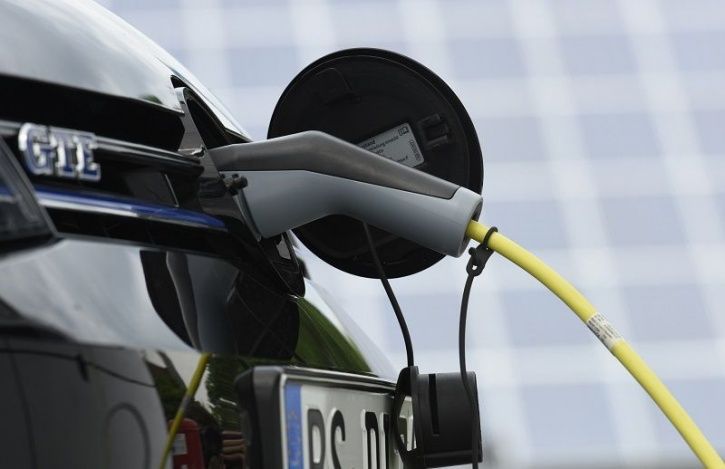
These Mobile Quick Charging Stations Are Set For 2019 Debut And Will Make The EVs Carbon Neutral In The Truest Sense
It looks like Volkswagen, the German auto major, has now come up with a way to let electric vehicles maintain their carbon neutral tag. How? The company recently previewed its quick mobile charging station concept for charging electric vehicles. And to maintain the zero-carbon emission standards, the charging stations will be powered completely by renewable energy.
The new quick charging stations are a complete in-house production of the group. Piloting in the home town of Volkswagen, the charging stations will be replicated in other EV communities around the globe, beginning as early as in the first half of 2019. Once set-up, commuters will be able to spot the stations through a dedicated smartphone app.
Volkswagen claims that the charging stations will be able to charge up to 4 vehicles at once, electric cars and bikes alike. A 100 kW connection will be responsible for the quick charging, with the batteries having a total capacity of 360 kWh, sufficient for around 15 e- vehicles.
Since the stations will be run through energy stored in a battery, the energy required to charge the battery can be provided either through the grid directly, or through a sustainable energy source like solar or wind energy. This eliminates any sort of limitations on the mobile charging stations, which can hence be set up almost anywhere.
The mobile charging column has been built upon the battery pack of the Volkswagen Group’s Modular Electric Toolkit (MEB), an EV architectural base that has been under research since 2015 by the company. The stations are meant to charge all the EVs, including the ones in the VW portfolio.

Recently, the city of New York appointed 50 such solar powered mobile charging stationsfor EVs, as a part of its plan to expand upon the existing charging networks in the city. BMW, also displayed its recent development on quick charging stations, which claim to charge a vehicle fully within a time span of 3 minutes.
With such development in the charging infrastructure and technology, the EV scenario is bound to get a boost globally and who knows, will be just as viable as their IC engine counterparts as and when they become mainstream mode of transportation across the world.









